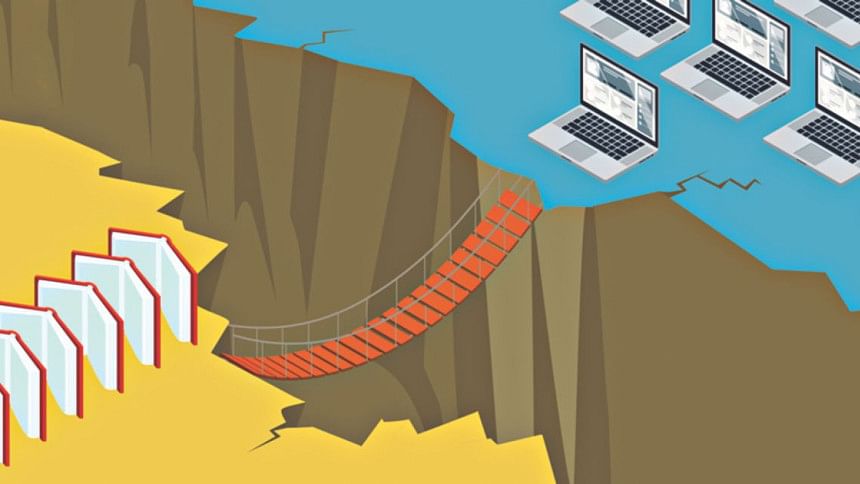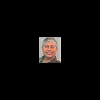Challenges in bridging the digital divide

In this age of the internet and social media we are constantly deluged with free information coming from all directions. More than a billion people are frequently making status updates on Facebook, the most popular social media platform today, so much so that more eyeball time now is spent on social media advertising than the same on television, radio and newspaper combined.
All kinds of curated news, views and factoids are available through popular online search engines such as Google or Bing. Using these search engines has become so commonplace that "Googling" is now a recognised verb. Many people don't even realise that Google or Facebook are commercial enterprises serving billions of people around the globe. To most people Google and Facebook are like dial tones—they are just there as ubiquitous services.
In this scenario what's glaringly missing is that a good third of the world population of around seven billion are still outside internet coverage. The bulk of these people living outside the world of internet are in Africa, Asia and Latin America. In Bangladesh even the most optimistic estimates put only a third of the population connected to the Net. In other words, two-thirds of the people in this country don't partake in the daily joys of FB status updates or Googling the name of a favourite restaurant as a way of life.
Even within the one-third that are presumably on the Net, the degree of Net immersion is quite varied. At the top of the online usage spectrum are those who are perennially connected to the Net from their home and work through Wi-Fi and through their smartphones and notebooks on the move while at the bottom are those that may occasionally check out a FB post or talk to a near and dear one abroad via Viber or IMO without often realising that these require internet.
While many believe that information technologies in general, and internet in particular, have democratised and decentralised access to information, these have created their own kind of haves and have-nots based on the extent of internet/telecom infrastructure and digital literacy prevalent in each country. In Bangladesh for example, even though 70 percent of the people carry mobile phones that potentially could be connected to the Net, the reality is that our overall literacy is around 72 percent and that too mostly in our own language Bangla. In the absence of adequate internet content in Bangla, the lion's share of the "literate" people really don't have much use for internet today.
The problem is quite similar in most developing countries. In fact we are a bit luckier in the sense that Bangladesh's topographical homogeneity by and large and small footprint geographically make it far easier to envelope the whole country in a web of telecom towers allowing almost universal coverage for internet. Our biggest bane as a nation—our lack of land area—is also our boon when it comes to internet coverage. Many countries in Asia, Africa and Latin America are not as lucky where vast tracts of inhospitable lands—deserts, mountains and forests—make for very cumbersome and expensive rollout of internet service.
That is why Google, FB and other Net-based Goliaths of the world are tinkering with low Earth orbit (LEO) satellites, solar-powered drones and helium-filled balloons to provide internet access to such areas. What's in it for them (on the face of it they claim they are trying to do this to bridge the gaps in the "digital divide")? The motive is not altogether altruistic as they figure bringing more people to the Net will help their businesses in the end.
Providing access to the Net is only one part of the equation; the bigger part is availability of internet content in native languages. In the latter area progress is very slow despite the fact that internet has been around for more than two decades which means two-thirds of our population who are under the age of 30 have grown up in a world where internet has always been around. It is especially poignant that more than half of these young people who make up the so-called "demographic dividend" remain outside the Net; to them digital lifestyle is at best a mystery and at worst a tool for discrimination.
Now throw in the monkey wrench in all this—internet services are mostly free, all the information is also free and anybody can disseminate any information one likes. Now, how do you know what's true and what's false? How do you discern between authentic sources and maligned ones? How do you protect against digital multinationals who capture all your private information and state-sponsored hackers that impregnate malicious content into popular online platforms? The answer is most of the time you don't and you have little recourse from being fooled. Millions of Americans presumably were hoodwinked by Russian hackers into mobilising votes for President Donald Trump in the 2016 election. Israel is known to use internet trolls to confuse genuine sources of news on Israeli atrocities in occupied West Bank and Jerusalem. Even in Bangladesh people have fallen victim to fake news circulating on the Net through FB and Google search engine.
Given all this, one is tempted to believe that today's internet world is:
"Where the mind is without fear
and the head is held high,
where knowledge is free.
Where the world has not been broken up into fragments by narrow domestic walls."
But the next part of Tagore's utopian vision is utterly missing:
"Where words come out from the depth of truth,
where tireless striving stretches its arms toward perfection.
Where the clear stream of reason has not lost its way
into the dreary desert sand of dead habit."
The internet today is a basic necessity of life and in many countries access to internet is considered a fundamental human right. We have some ways to go before we can claim universal coverage and localised content for internet but policymakers and economic planners need to formulate policies and plans to bring every denizen under the sun into internet's fold. At the same time, our basic literacy curriculum needs to include digital literacy components so that netizens (Net-savvy citizens) can better navigate through the global information maze and not get sucked into an internet quicksand!
Habibullah N Karim is an author, policy activist, investor and serial entrepreneur. He is a founder and former president of BASIS and founder/CEO of Technohaven Company Ltd.
Email: [email protected]





Comments